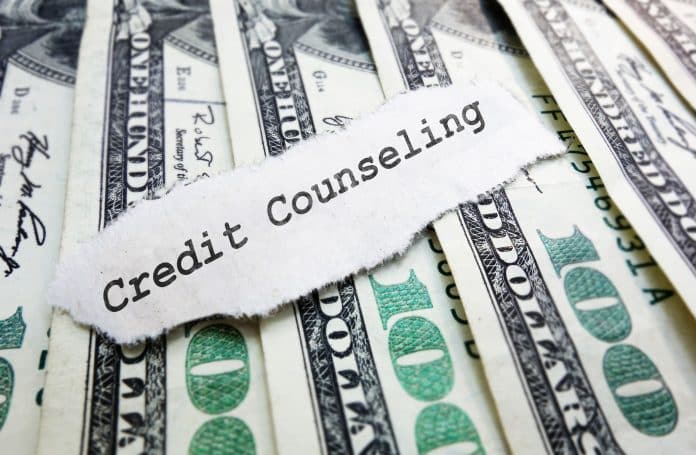
Living paycheck to paycheck is more than unpleasant. It can be a straining battle on your emotions and stress levels. Expenses can add up quickly. Credit card debt, medical bills, loan repayments, etc., can all take a toll on your finances if not managed properly. If you start missing payments, you may start hearing from debt collectors. You can hurt your credit standing if you start mishandling your debt. That is where budgeting becomes an important component of your financial health.
It can be difficult to create a budget that works for you. Especially when you are dealing with life and work. That is why you may want to consider a credit counselor to help your financial situation. Consumer credit counseling services are a type of nonprofit that aim to help people find a plan for their financial issues. It is important to know that not every nonprofit is free of charge. Some of these nonprofit credit agencies charge fees that don’t go towards debt reduction. That is why you need to be wary when dealing with them. Make sure the agency you are looking at is legit.
How Can Consumer Credit Counseling Help?
Legitimate agencies provide advice to clients on money management. They can help you with a multitude of financial aspects like preparing a budget, providing resources and educational workshops for free, and more. These certified agencies have debt and money management specialists ready to assist.
Not a Bankruptcy Alternative
It is important that you never sign up with an agency that says their services are an alternative for bankruptcy. Even if these agencies claim that there will be no impact to your credit for their services, they may be deceitful. They may try to scam you by advising you to make payments to the creditors (them) instead of money directly to the agency. This is never a good idea.
How to Pick a Consumer Credit Counseling Service
The best way to find a consumer credit counseling service is to comparison shop. When you comparison shop, you need to keep note of a few aspects. First, you will want to be mindful of red flags. One of the biggest red flags you may come across is if the credit counseling service doesn’t offer free information about the agency before asking about your personal details.
Secondly, you will want to make sure the agency is verified with the Better Business Bureau. You want to be sure there are no complaints against the company. However, an agency could still be a scam even if there are no complaints.
Finally, in order to be fully certain, you can contact the United States Trustee Program. They can provide you with a list of approved credit counseling agencies. The best agencies have debt management plans compared to agencies that have quick ideas to rid yourself of debt.
It is good to ask questions to the agency you are interested in as well. Questions you will want to ask your credit counseling company include:
- Do you provide free information about your company?
- What services do you provide?
- What fees do you charge? (Make sure to get specific information about how pricing is set up)
- In what ways will the agency be able to help me avoid debt issues in the future?
- Is this agency licensed to provide financial management services? Is the license valid in the current state you are in?
- Are counselors trained and certified by an affiliate party?
Any agency that is not eager to answer your questions is one you should avoid. They should be able to provide you this information without you having to provide any personal details.
Where to Find a Credit Counselor?
It may be easier than you think to get started on your credit counseling journey. The first place you should check out is the nonprofit National Foundation for Credit Counseling (NFCC). The NFCC has been helping individuals handle their credit since 1951. That is why they have network offices in every state in America. In order to get connected to an NFCC-accredited counselor you can contact them via phone at 800-388-2227. From there you will be able to begin your credit counseling journey!
What Can You Expect When You Get a Credit Counselor?
Now that you know which organization and counselor you want, it is time to get started! When you go into a credit counseling session, you can expect to go over:
- Budgeting assistance.
- Credit report review.
- Financial improvement tips.
- Resources and tools guidance.
The goal of these sessions is to provide the client (you) with personalized feedback on their credit situation. This means looking at the good, and the bad, in order to create a plan for better financial management.
What would be best for you depends on your current financial standing. You may discuss a debt management plan (DMP). A DMP goes over how you can get out of your debt faster, lower your interest rate, and follow a payment schedule. However, a DMP is usually a last resort.
If your credit counselor tries to push a DMP as your first and only option, that can be a good sign that they are not legit. Afterwards, your credit counselor will continue to follow up to keep track of the progress on your plan. It may benefit you to schedule another session to have a full follow-up.
What is a Debt Management Plan (DMP)?
When you are going through the credit counseling process you will likely come across a DMP. It is important that you have a clear understanding of DMPs so that you can make educated decisions for your financial situation.
The reason DMPs are important is due to their setup. In a traditional DMP, you will need to deposit money to your credit counseling organization every month. The organization then uses that money to handle your repayment towards creditors in a timely manner.
The reason this can get a little bit sketchy is due to the fact that you will be sending money to your credit counseling organization. You run the risk of getting scammed, if this is not a legit business. Also depending on the organization you choose to get help from, you may have to deal with DMP fees.
Fees vary by organization but the fees that you may deal with can range from set-up fees, to monthly fees, and more. However, some organizations offer fee waivers depending on your financial situation.
How to Make the Most Out of Credit Counseling?
Credit counseling should be utilized to the fullest extent if that is a patch you decide to go down! That is why you want to squeeze the most out of your credit counseling. That means you will need to do a bit of prep work before getting help.
The best thing you can do is provide accurate information to your credit counselor. This will be able to paint an accurate picture of the financial issues you are dealing with. You also want to have good timing. If you are feeling stressed or rushed with this process due to time constraints, you may want to consider doing this at another time. When you are feeling emotionally overwhelmed you can make mistakes that lead to costly errors.
Overall
Credit counselors can be an amazing tool for those who need help managing their financial situation or for those that need more information about financials in general. A credit counselor may be able to help you achieve your financial goals while providing you access to resources and tools that can help.
Before deciding on a credit counseling agency, make sure they are legit. You want to try to get a nonprofit option that has accredited credit counselors. Before deciding on the agency to get assistance from, make sure to do a lot of home research.
If you don’t think that credit counseling is a good option for you, then there are alternative methods that you can consider to handle your financial situation. Some alternatives to credit counseling can be debt settlement or a balance transfer.
Debt settlement services are commonly referred to as debt relief. Also known as debt adjustment services, you may be able to have a company manage your creditors for you. However, this option isn’t for everybody because they may be sketchy, and have a lot of fees.
Balance transfers, on the other hand, are a bit different. If the debt that is causing you issues is credit card debt, then this may be a good option for you. Balance transfers provide more time to handle your debts by transferring the balance from one line of credit to another. However, this option may have interest rates that could be more costly if not properly handled.
If you don’t want to use a credit counselor to completely rework your financial situation, that’s okay! You can still contact them for some free advice. If you have any more questions, you may want to contact your local financial institution for more assistance. Make sure you take your time!





















